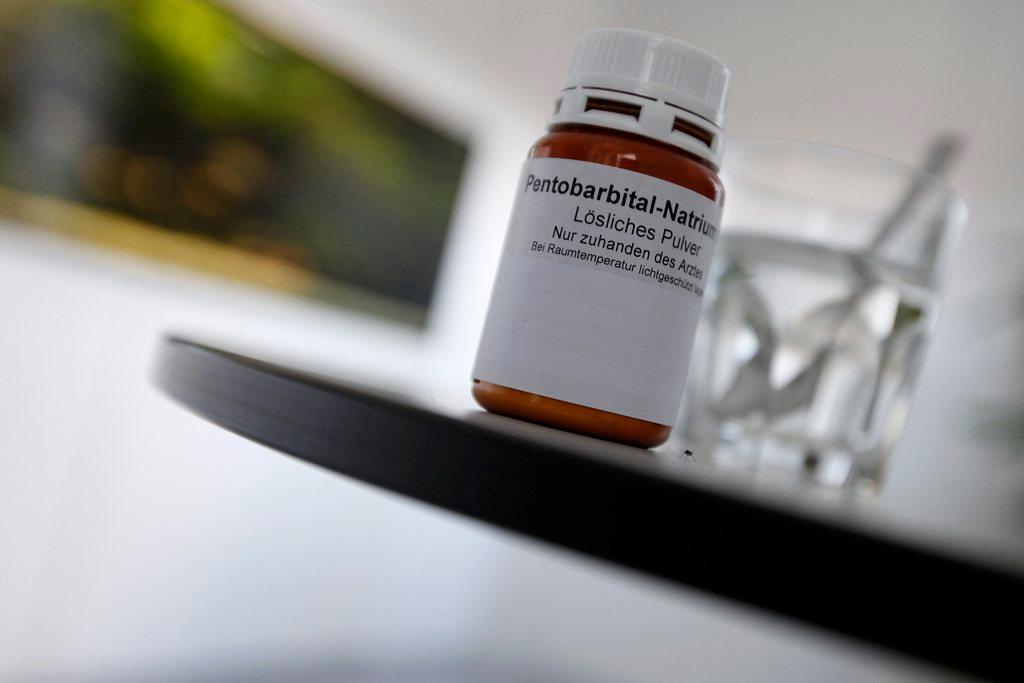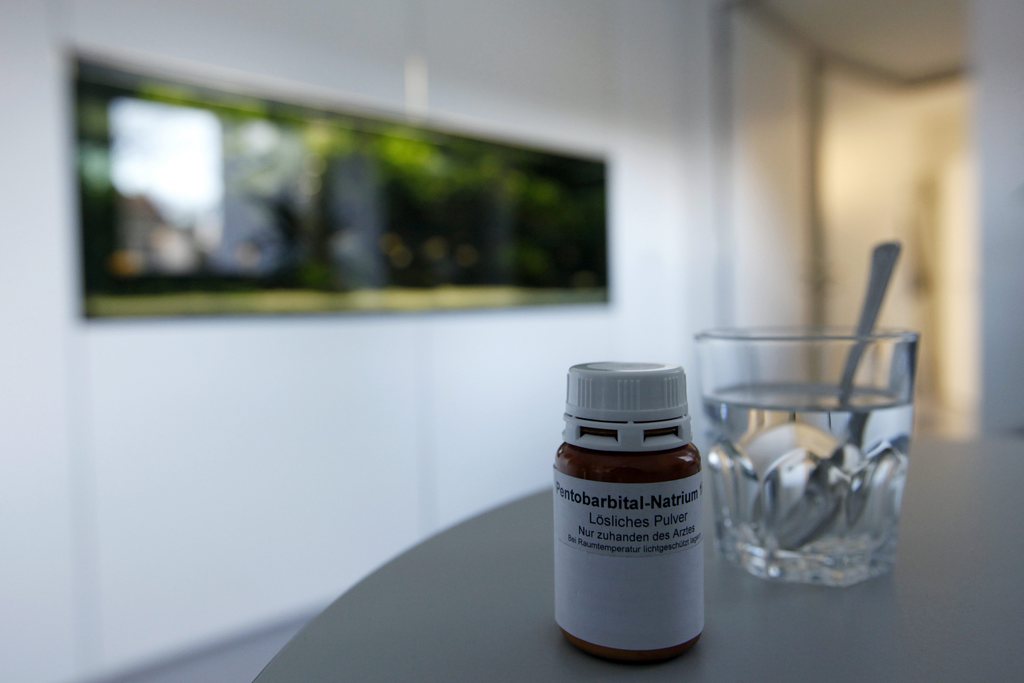EXIT reports jump in assisted suicide numbers

Swiss assisted suicide organisation EXIT helped 782 people end their lives in 2015 – 199 more than the previous year.
Of the deceased, 55% were women and 45% men, reported EXITExternal link in a statement released on Tuesday. Among them, the most common reason for wanting to die was terminal cancer, followed by age-related health problems and chronic pain disorders.
The average age of each person at the time of death was 77.4. The patients lived mainly in the cantons of Zurich, Bern, Aargau, St Gallen, Basel City and Basel Country.
In 2015, EXIT received some 3,500 requests for euthanasia, and looked into 1,100 of those cases in detail – bringing the number of opened cases up by 20%. EXIT, active in German-speaking Switzerland and in Ticino, attributes the rise to the steady increase in membership and the significant ageing of society.
Each year for the past eight years, EXIT has welcomed thousands of new members. Membership is at about 96,000, and members must be residents of Switzerland.
Right to decide
Swiss law tolerates assisted suicide when patients commit the act themselves and helpers have no vested interest in their death. Assisted suicide has been allowed in the country since the 1940s.
Death is usually induced through a lethal dose of barbiturates that has been prescribed by a doctor. Ingestion of the poison, whether by drinking it or through the use of intravenous drips or stomach tubes, must be carried out by the person wanting to die.
A 2006 decision by the Swiss Federal Court ruled that all people of sound judgment, irrespective of whether they suffer from a mental illness, have the right to decide the manner of their death.
The government examined various options to regulate assisted suicide practices and in June 2011 decided not to seek changes in the law but to boost suicide prevention and palliative care.
Switzerland has two main groups that cater to people who seek an assisted suicide: EXIT and Dignitas.
Compared to other European countries, patients in Switzerland are more likely to go without treatment when death is near. Researchers from the universities of Zurich and Geneva interviewed doctors in German-speaking Switzerland about end-of-life care in 2013. They looked into more than 2,000 deaths.
According to their research, they found that in more than four out of five cases, there was some form of physician-assisted suicide – either by terminating treatment or by increased prescription of painkillers, like morphine. The research appears in the JAMA Internal Medicine journalExternal link.

In compliance with the JTI standards
More: SWI swissinfo.ch certified by the Journalism Trust Initiative













You can find an overview of ongoing debates with our journalists here . Please join us!
If you want to start a conversation about a topic raised in this article or want to report factual errors, email us at english@swissinfo.ch.